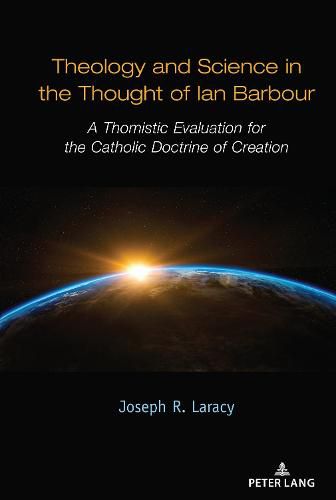Readings Newsletter
Become a Readings Member to make your shopping experience even easier.
Sign in or sign up for free!
You’re not far away from qualifying for FREE standard shipping within Australia
You’ve qualified for FREE standard shipping within Australia
The cart is loading…






This title is printed to order. This book may have been self-published. If so, we cannot guarantee the quality of the content. In the main most books will have gone through the editing process however some may not. We therefore suggest that you be aware of this before ordering this book. If in doubt check either the author or publisher’s details as we are unable to accept any returns unless they are faulty. Please contact us if you have any questions.
This book is an important new study on the thought of the late Professor Ian Graeme Barbour (1923-2013). Barbour was a prominent American theologian and physicist who served for many years on the faculty of Carleton College, Northfield, Minnesota, USA. His highly significant research on the relationship between theology and science led to an invitation to deliver the esteemed Gifford Lectures in Scotland (1989-1991) and won him the prestigious Templeton Prize in 1999. In this monograph, Joseph R. Laracy analyzes Ian Barbour’s distinctive approach to the relationship between theology and science, largely unexplored in the Catholic tradition, according to fundamental theological criteria. He investigates the possibility for Barbour’s epistemic, metaphysical, and theological principles to enrich the dialogue and integration (to use Barbour’s terms) of the Catholic doctrine of creation with the natural sciences. Throughout the monograph, substantial reference is made to Saint Thomas Aquinas, as a Catholic monument to the doctrine of creation in particular, and more generally, the beneficial interaction of natural philosophy, metaphysics, and revealed theology.
This book will likely be of interest to graduate students and scholars in the fields of fundamental and systematic theology, religion and science, the philosophy of science, and the history of science.
$9.00 standard shipping within Australia
FREE standard shipping within Australia for orders over $100.00
Express & International shipping calculated at checkout
This title is printed to order. This book may have been self-published. If so, we cannot guarantee the quality of the content. In the main most books will have gone through the editing process however some may not. We therefore suggest that you be aware of this before ordering this book. If in doubt check either the author or publisher’s details as we are unable to accept any returns unless they are faulty. Please contact us if you have any questions.
This book is an important new study on the thought of the late Professor Ian Graeme Barbour (1923-2013). Barbour was a prominent American theologian and physicist who served for many years on the faculty of Carleton College, Northfield, Minnesota, USA. His highly significant research on the relationship between theology and science led to an invitation to deliver the esteemed Gifford Lectures in Scotland (1989-1991) and won him the prestigious Templeton Prize in 1999. In this monograph, Joseph R. Laracy analyzes Ian Barbour’s distinctive approach to the relationship between theology and science, largely unexplored in the Catholic tradition, according to fundamental theological criteria. He investigates the possibility for Barbour’s epistemic, metaphysical, and theological principles to enrich the dialogue and integration (to use Barbour’s terms) of the Catholic doctrine of creation with the natural sciences. Throughout the monograph, substantial reference is made to Saint Thomas Aquinas, as a Catholic monument to the doctrine of creation in particular, and more generally, the beneficial interaction of natural philosophy, metaphysics, and revealed theology.
This book will likely be of interest to graduate students and scholars in the fields of fundamental and systematic theology, religion and science, the philosophy of science, and the history of science.